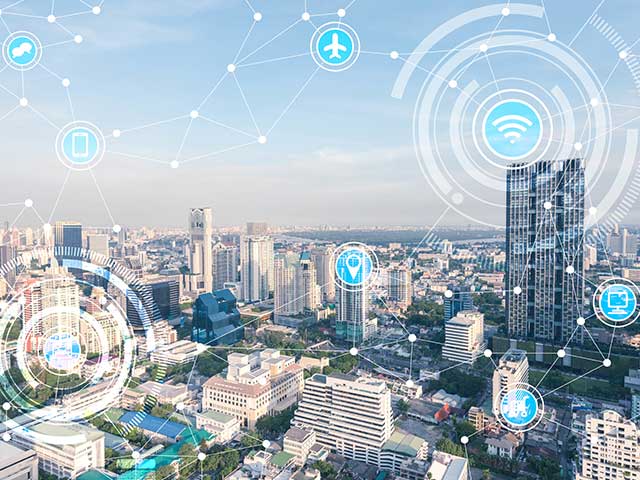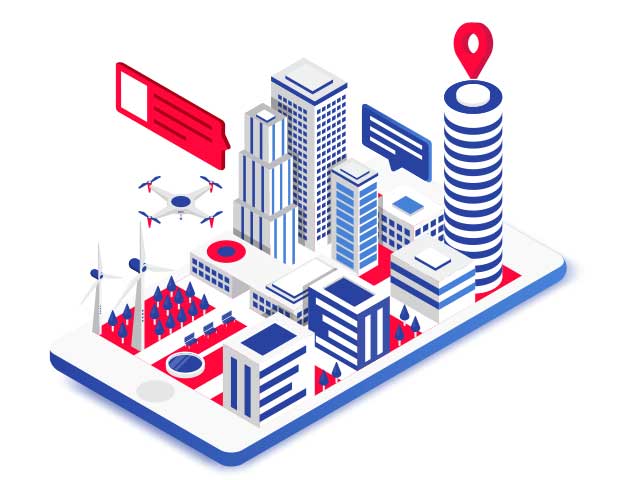The connection required for smart city technologies to operate is provided by 5G cells. For IoT to work efficiently, urban areas are used that provide a strong connection between millions of devices and sensors. Therefore, cities like London continue to build 5G cells across the city using planes to identify available areas.
Smart City Tech & Solutions
What Is
Smart City?

Smart city uses technology to improve urban public services and the daily living practices in the city. Municipal services use IoT sensors and applications to collect data such as traffic problems, energy consumption and fresh air. This data is then used to improve city services.
Big Data
and IoT in Smart Cities
IoT is the basic technology, a must for smart cities. It collects data that can be used in technological solutions through objects, sensors and applications with IoT technology. For example, smart water meters transmit information on the quality level and usage of water. In this way, the water company is prepared for possible situations.
On the other hand, big data analytics are needed for smart cities to work efficiently. Large data collected through IoT needs to be processed and analyzed.
• City lighting: Smart street lighting was introduced in London and Quebec. These street lights are also designed as Wi-Fi hotspots. These smart lamps, which also include a security camera, serve as a charging station for electric cars and phones.
• Waste management: A cleaner environment and technological solutions for waste prevention. For example, in Songdo, South Korea, smart garbage collection stations are used instead of garbage trucks. Residents are collecting their garbage in these stations, which are sorted according to different categories. When the station is full, the sensor is activated and the waste is automatically sent to the recycling center.
• Online public transport: Thanks to the sensors used in public transport, public transport such as buses and trains arrive at the stop in real time.

The sensors in the IoT system are at the center of each device. From connected vehicles to traffic lights and smart homes, almost every device has sensors that collect and send data in the cloud. This connection is what makes the Internet of Things system possible.
Detailed geographical information is required for accurate and efficient city planning. In smart cities, GPS technology is used for transport management. With the Geographic Information System, city planners can create a digital model using data including geographic conditions.
Robots have become part of everyday life, not only science fiction films. In cities such as Dubai, Singapore and Tokyo, efforts are being made to develop humanoid robots in many areas from the service sector to the public.
